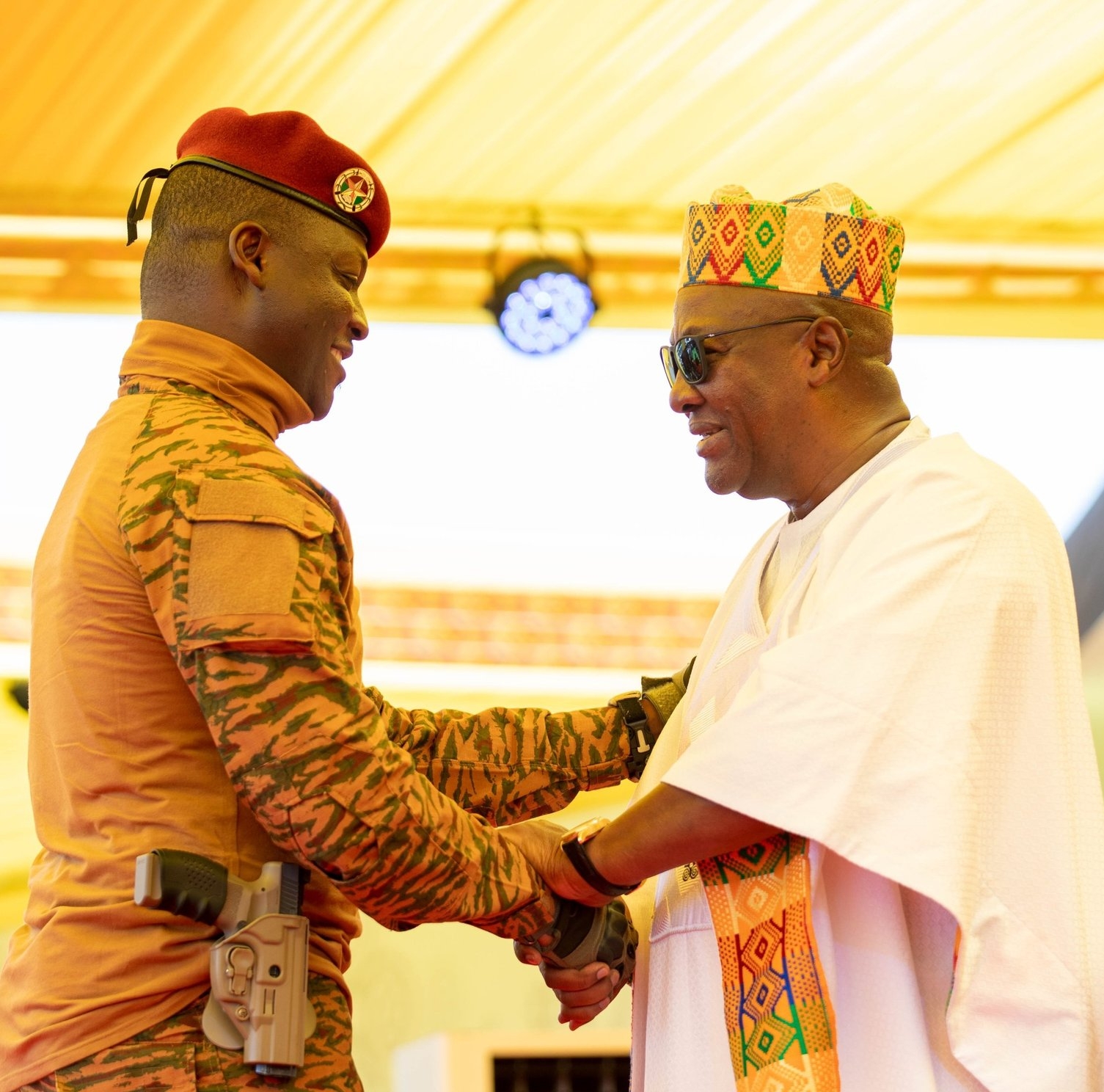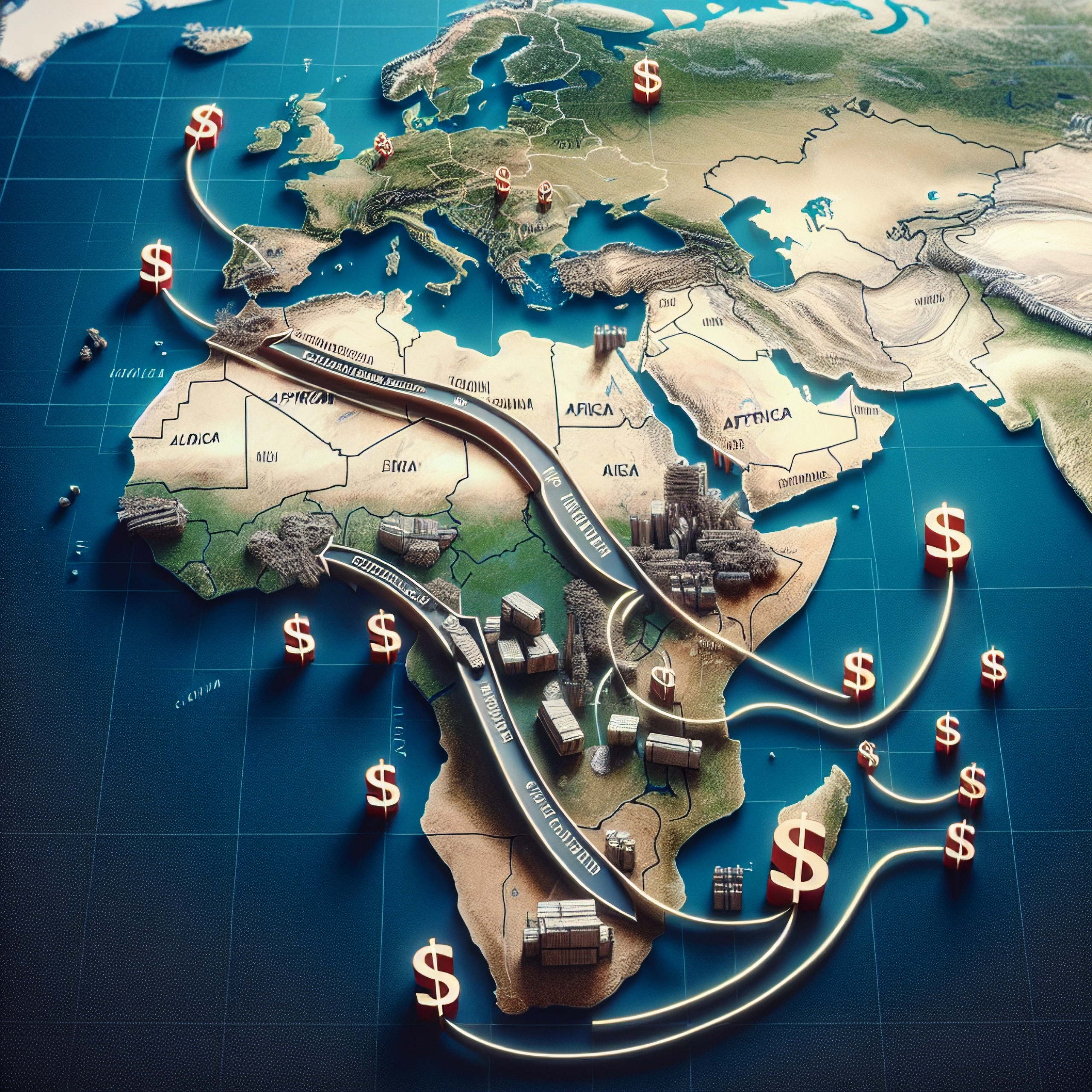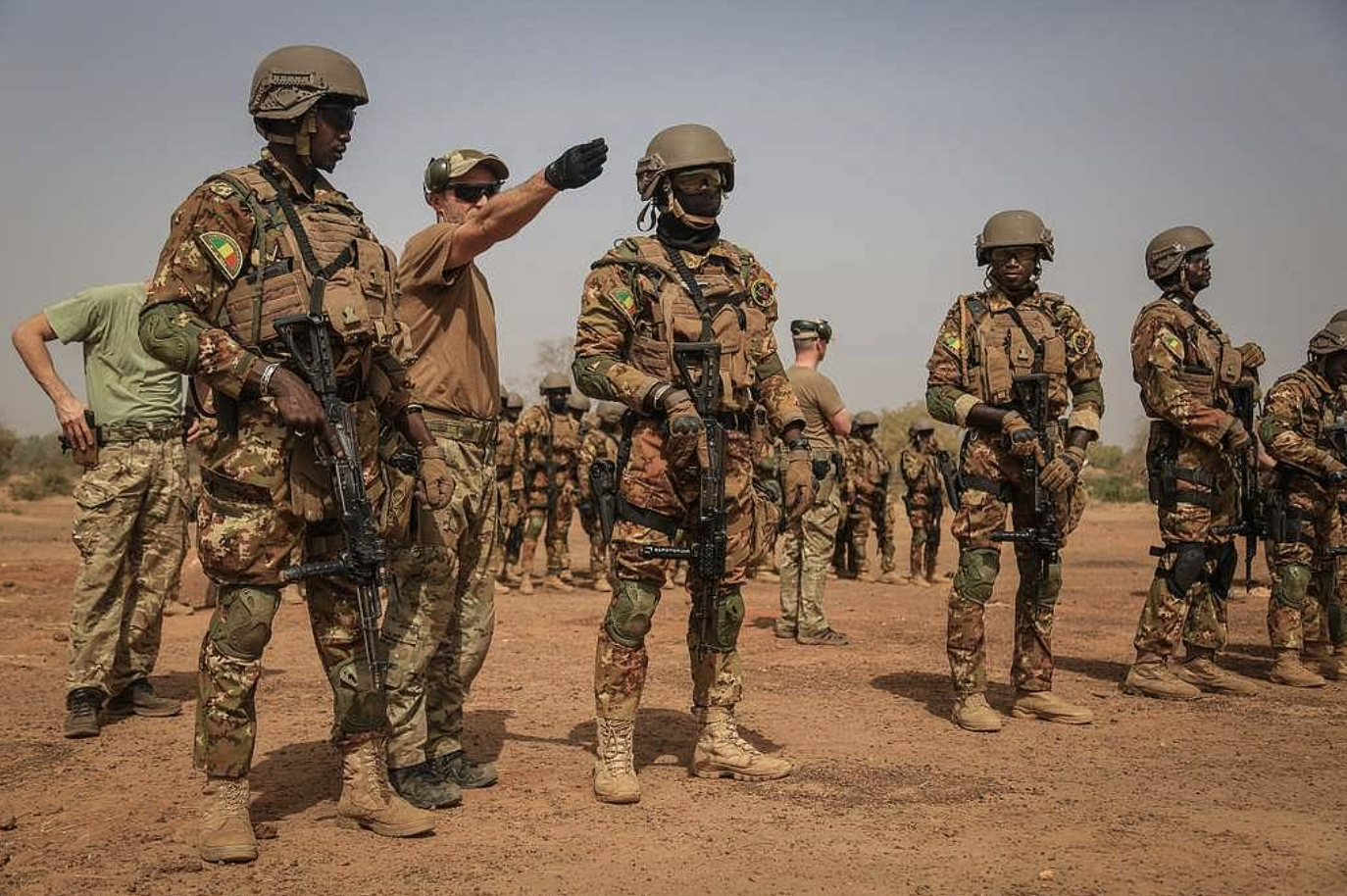Ghana’s Sahel gambit

Understanding President Mahama’s diplomatic outreach to West Africa’s breakaway juntas.
The appearance of Burkina Faso’s military leader, Captain Ibrahim Traoré – armed with a pistol – at the inauguration of Ghana’s new president in January raised eyebrows across the region.
President John Dramani Mahama’s embrace of Captain Traoré marked a stark contrast with the approach of his predecessor, Nana Akufo-Addo, who also served as ECOWAS chair during the early spate of coups in the Sahel. Under his watch, Ghana supported efforts to isolate the Malian, Burkinabé, and Nigerien juntas through heavy sanctions and even the threat of military intervention – tactics that ultimately failed.
Traoré’s participation in the inauguration – and just weeks before the Alliance of Sahel States (AES) completed its withdrawal from ECOWAS – suggests a new approach to regional diplomacy under Mahama.
Ghana’s new engagement strategy
In early March, Mahama travelled to Mali, Niger, and Burkina Faso – further evidence of his departure from Accra’s long-held position of isolating the three junta-led states.
During a meeting with Colonel Assimi Goïta in Bamako, the president pledged to “restore [the] trust” between ECOWAS and the Sahel trio. The following day in Niamey, he reportedly discussed with General Abdourahamane Tchiani “the need for […] recognition of the AES by ECOWAS.”
Formal recognition of AES by ECOWAS remains unlikely, given strong resistance from the commission and member states. But Mahama’s diplomatic outreach could help revive channels of communication between the two estranged blocs – an important foundation for security cooperation in a fragmented region.
Growing militant threat amid regional divisions
Amid the ECOWAS-AES rift, jihadist militants operating in the Sahel have exploited the breakdown of regional military coordination to probe southward toward Ghana, as well as Togo, Benin, and Côte d’Ivoire – all of which have suffered violent attacks from the spillover.
Meanwhile, reports suggest militants fighting in Burkina Faso have been using northern Ghana as a logistical base and radicalising local populations already divided on ethnic lines. Under Mahama’s predecessors, Accra maintained a covert policy of non-engagement to avoid direct confrontation, frustrating the northern communities affected by the violence. This contributed to a surge in support for Mahama’s National Democratic Congress (NDC) along the Burkina Faso border, eating into the share of the vote for New Patriotic Party (NPP) candidate Mahamadu Bawumia in last year’s election.
During his meeting with the Burkinabé junta, Mahama called terrorism “a cancer that must be addressed through united action.” Refraining from drawing lines between ECOWAS and AES reflects his realpolitik approach: effective counterterrorism requires seamless cooperation even between two ideologically hostile blocs.
This strategy has helped thaw the froideur between ECOWAS and AES in small ways. The Sahel leaders responded positively to his visits, agreeing on the need for deeper regional collaboration to address the jihadist threat.
Mahama’s balancing act
Nevertheless, engaging the juntas risks undermining Ghana’s commitment to the ECOWAS charter and democratic norms at a time when the country needs support from international partners as Mahama seeks to conclude debt restructuring and refine its IMF programme. Moreover, with ECOWAS’ authority already weakened, Mahama’s outreach could ease pressure on the likes of Guinea – the only military-led government still within the bloc – as it prepares for a constitutional referendum and elections in 2025.
But a comprehensive regional security arrangement will not materialise with the Sahel trio sidelined. Rather than pressuring them back into cooperation, ECOWAS’ historically firm stance has bolstered junta legitimacy at home by reinforcing their narrative of souveraineté retrouvée, with many citizens welcoming the withdrawal from the regional bloc.
As the coup leaders exert a firmer grip on power, integrating the three breakaway states under an ECOWAS-led security framework appears increasingly unlikely. Neither is Mahama likely to push for formal recognition of the AES, wary of the reputational fallout.
Forging security partnerships beyond ECOWAS
Mahama’s new diplomatic strategy could prefigure a hybrid partnership model for the region: states engage bilaterally on specific security matters while sidestepping the broader ideological divides between the two regional blocs.
Ghana’s presidency spoke of “the importance of strengthening ties [between Ghana and the AES] to advance Africa’s sovereignty” in the security domain – language that the juntas, all of which have ended their ties with France, will appreciate.
Other West African countries also appear to be interested in more agile security cooperation with the Sahel states that bypass traditional ECOWAS frameworks. Togo’s foreign minister Robert Dussey has twice proposed joining the AES, driven partly by a security calculus and partly by a desire to capitalise on regional trade. Meanwhile in Senegal, whose new president Bassirou Diomaye Faye closed foreign military bases and ordered the withdrawal of French troops last year, representatives from the Ministry of Armed Forces recently met their Malian counterparts to discuss combatting jihadist groups along the border.
A pragmatic approach to cooperation
Ghana and Senegal alike have spoken of “good neighbourliness” following their meetings with the juntas, emphasising a flexible, pragmatic approach rooted in historical and cultural ties rather than ideology. Mahama may be seeking to establish Ghana as a less partisan player in the region than the likes of Côte d’Ivoire, which the juntas have accused of interfering in their domestic politics.
Accordingly, he has not attempted to coerce Mali, Niger, or Burkina Faso back into ECOWAS, but spoken of the “friendship” between the different nations and the need for “continued dialogue and reconciliation” to address a grave security crisis that all parties urgently want resolved.
This strategy is sympathetic to the AES’ sovereignist narrative, which, while primarily a justification for military rule, also reflects a real – if sometimes manipulated – desire for independence in partnerships and decision-making. Mahama recognises that renewed security cooperation in West Africa hinges on the juntas feeling they can freely choose their allies.
Laying the groundwork for future stability
Immediate political differences need not therefore obstruct a coordinated regional response to West Africa’s security crisis. Ghana’s attempt to engage rather than isolate the AES may well be informed by this: Mahama believes that his own country’s security depends on facilitating a collaborative security framework with the Sahel states.
If successful, his diplomatic outreach – a blend of principle and pragmatism that acknowledges the souveraineté retrouvée of the Sahel – could bolster the president’s standing and credibility in the region, positioning him for a potential bid for the ECOWAS presidency in the coming years. In the meantime, however, it is an important step to restoring trust between the estranged blocs on areas of shared interest, ultimately laying the groundwork for a more robust regional security architecture.
Image credit: X/Africa Facts Zone
Proud to be BCorp. We are part of the global movement for an inclusive, equitable, and regenerative economic system. Learn more


